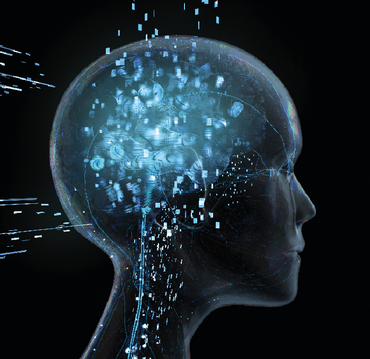The Associated Press recently announced that it is now accepting sentences that begin with the word ‘hopefully’.To those of us who may not be grammar experts this may seem like an odd announcement to make, but my guess is that the majority of us, myself included until I read the story, probably didn’t know that the original and proper English usage of the word ‘hopefully’ operates much the same as the word ‘joyfully’ does.
“We rode in the car joyfully.”
“We went swimming in the ocean hopefully.”
Through American slang the common usage of the word ‘hopefully’ changed to mean ‘I hope’, as in, “hopefully it won’t rain today”. It became a desire rather than a description.
How many times have those of us within the skeptical community been assailed with one or another variation of the falsehood that goes something like this;
“You defined faith as ‘belief without evidence’, however, don’t we all use faith in one form or another?”
“Don’t you have ‘faith’ in science and reason?”
“Isn’t trusting reason itself a matter of faith?”
I have heard this bit of casuistry time and again from believers of all manner of superstition/religion/woo-woo. As I wrote in:
http://thorntonsguerillablog.blogspot.com/2012/01/faith-based-reasoning.html
equating faith based thinking to reason, rationality, or the scientific method is a fallacy, always.
Believers in superstition like to assume that everyone, at some point, needs some form of faith. In order to rationalize this assumption they play between what amounts to three fuzzy descriptions for the term ‘faith’. The first is to define faith as something akin to a positive attitude, as in, “have faith, you’ll do fine”.
The second is in my opinion technically the same, but takes a slightly different tone, and could easily be defined as wishful thinking, as in,“I have faith that tomorrow will be better than today.” Note carefully that in both definitions the word “faith” could easily be replaced with the word “hope”, and the meaning, context and sentence structure would require no modification.
The third use of the word faith is the problematic one. It is a claim to knowledge. For example someone says, “I know Jesus is the one true God” , and when asked to present evidence for this extraordinary claim they state, “It is a matter of faith”. Note that in this case the word ‘faith’ could not be replaced with a word like ‘hope’, or at the very least we can safely say that believers in superstition tend not to replace it with such a word.
Ask yourself the following, when was the last time you heard a Christian minister say anything like this, “We hope that Jesus is Lord and savior”?
When was the last time the Mormon Church declared, “We hope Joseph Smith actually did find golden tablets”?
When was the last time the Catholic Church stated: “We hope Jesus was born of a virgin”?
Have the Jehovah’s Witnesses ever said, “We hope 144,000 truly is the number of people elected to rule in heaven”?
Does the Dalai Lama say that he “hopes” he is the 13th reincarnation?
When was the last time a Mullah got up in the mosque and said that he “hoped” Allah was the one true God?
All of the statements above could be said without any required dishonesty, and if religion came to mean hopes and desires, rather than claims to knowledge, then religious superstition in all its forms would be a lot less problematic for the planet; but religion by its very nature is dishonest. All religions, East and West, make claims to knowledge that we know they cannot possibly know. As such, the use of the word ‘hope’ doesn’t enter into these sorts of assertions that these traditions make.
Here is the sneaky part, when non-believers use the word ‘hope’, believers want to be able to perform a slight of hand shell game and pretend that this too is a knowledge claim. As we can see from the examples above however, this simply isn’t true. If I state, “I hope there is life after death” I am not pretending to know something I do not know, I am simply stating my own desire for how I wish reality to be. However, if, like a preacher I claim, “The soul survives death”, then I am positing an affirmative rather than just a hope, I am pretending to know something I do not know, I am lying; and it is in these situations, when pressed for evidence for these outrageous assertions, that believers are forced to play the ‘faith’ card.
It may seem like I am painting a pretty devious picture of how believers handle argument, but I don’t think it is always that simple. The conflating of faith and hope is nothing more than a confidence trick, one that most likely evolved as many things within religious traditions evolve, as a defense mechanism against critical thinkingand the questioning of dogma. To be clear, all manner of superstitions rely on this particular bit of chicanery, from traditional religions, to alternative medical quackery, to New Age sophistry; and believers in these faiths may not even know they are engaging in the artifice, or even understand that it is a form of deceit. In fact, they are probably just thoughtlessly repeating the mistake.
Speaking of solipsists, I had a run in with new age Guru Deepak Chopra where, when called on an outrageous faith claim he was making, he attempted to play the very same card. My twitter ID isaliveness_ape, here is the conversation:
aliveness_ape: until you produce some evidence that consciousness can exist absent the brain, the “cosmic” consciousness talk remains silly.
DeepakCopra: brain exists in consciousness not the other way around.
aliveness_ape: where is your evidence for that statement? Absent evidence for the brain existing ‘in’ consciousness, all you have is an irrational superstition.
DeepakCopra: where is your evidence that your mother loved you, or that you can feel joy?
aliveness_ape: you’re comparing that for which we have lots of evidence, primate love for offspring, to something with no evidence-irrational. The idea that my mother probably loved me, is not a radical hypothesis. The idea that consciousness exists absent a brain, is. Extraordinary claims require extraordinary evidence. Produce some, or all you have is theology-superstition.
Deepak’s follow up, none, I think we reached the end of his reasoning ability.
When I asked what evidence Deepak had for his extraordinary claim,had he answered, “I have no evidence, but I ‘hope’ it is true”, I may not have had a disagreement with him. In truth, I find Deepak’s own Vedantic leanings to be a far more pleasant hypothesis than I do the celestial dictatorship of a sky God.
However, that is not what Deepak said is it? In fact, that is not what any religious or superstitious person says or means when they play the faith card. By definition the introduction of the faith card by the person being asked to present evidence for their claim is an admission of defeat. It is the answer you give when you have no reason, and yet still pretend to know.
This brings me full circle to the point of my essay. The word ‘faith’ is only required when we are pretending to know something we do not actually know. And rather than a virtue, this is a very dangerous character flaw. In a rational world, not pretending to know things you do not know would be considered a moral advantage. After all, the alternative is lying.





